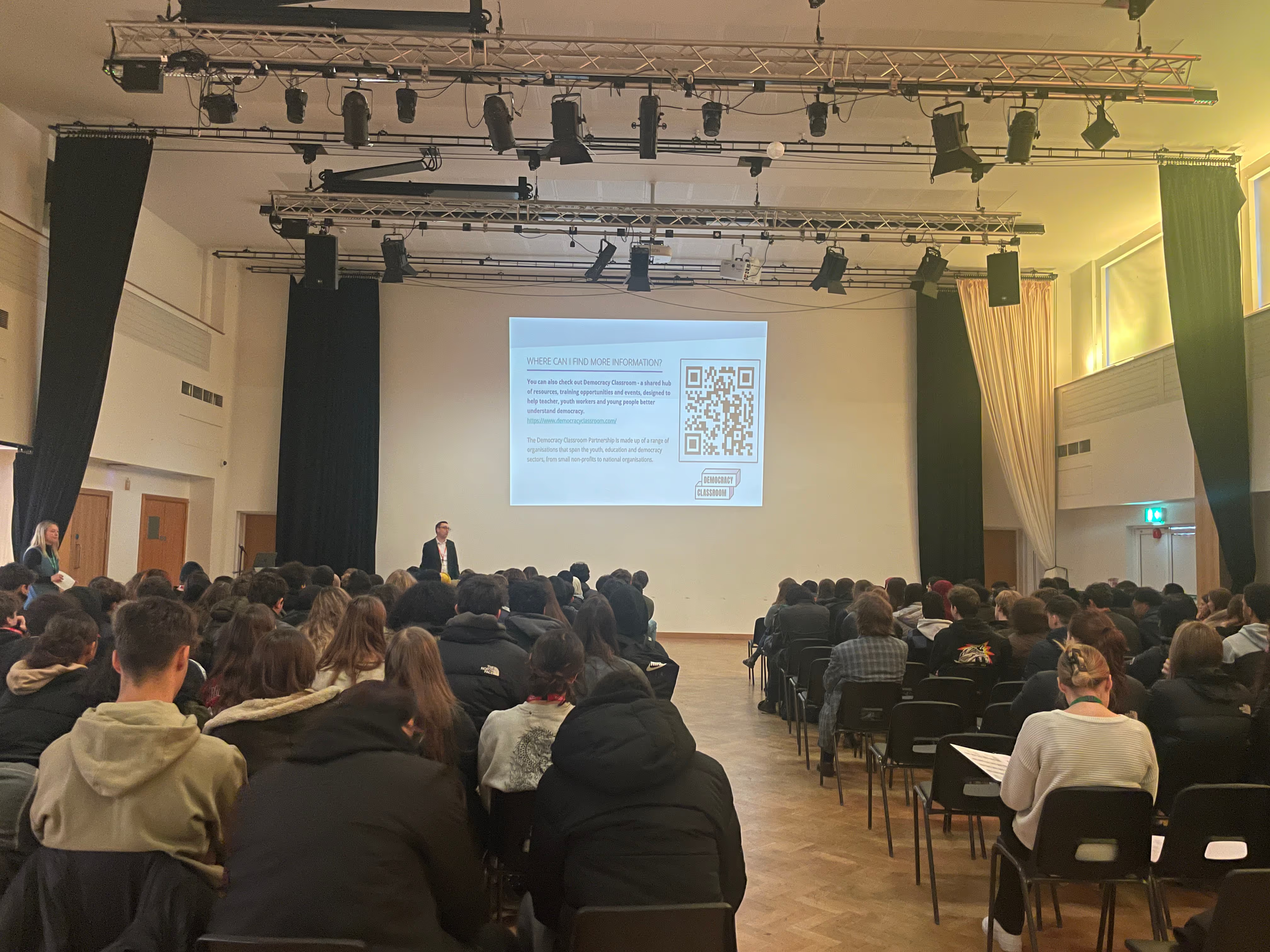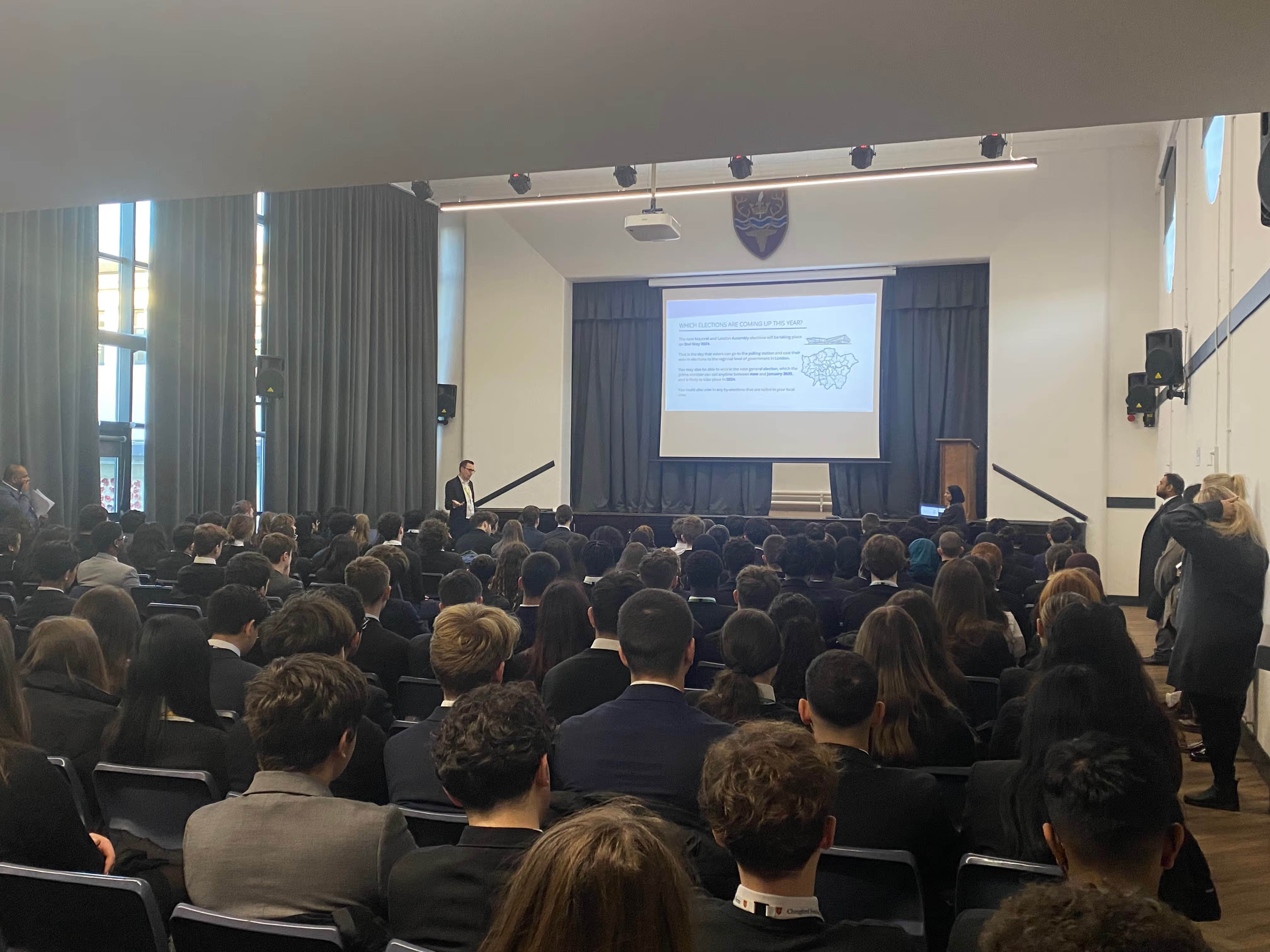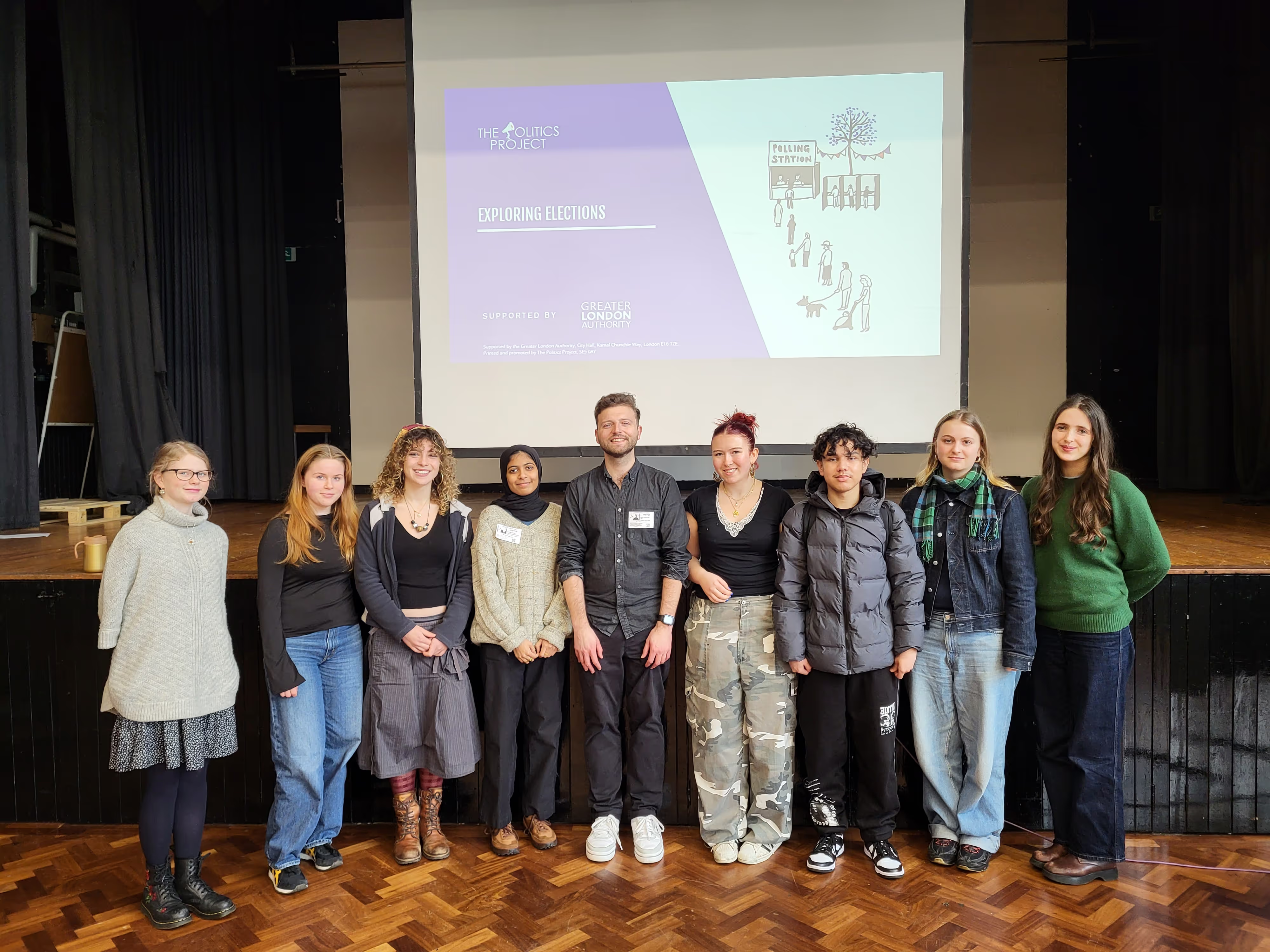Key Learnings

1. Preparing for Registrations
To ensure the students were able to register to vote in our workshops, we worked with teachers and youth practitioners in advance to make sure their young people were prepared to register to vote during the Exploring Election sessions.
In particular we:
- Used QR codes in assemblies and workshops to enable young people to register to vote using their own phones. 86% of registrations happened during the sessions. To do this we had to get special permission for the young people to have access to their phones.
- To ensure young people had the correct information to register to vote, we shared materials with schools prior to their sessions to prompt young people to find out their national insurance number.
- In all of the sessions we made paper and easy-to-read registration forms available. This allowed us to support SEND young people in our sessions with Caxton Youth Organisation and HF Mencap Youth Development Project.

2. High Demand for the Programme
This programme was in high demand from schools and colleges and this gave us an opportunity to access young people that we would have struggled to engage with any other way. From our initial recruitment round we had 120 applications to take part and only 30 places on the programme. This interest was generated from a single round of emails to schools we didn’t have a previous relationship with. In our experience this is an unusual level of engagement.
The offer was attractive to schools and colleges for a few reasons. It didn’t incur a cost to the school and didn’t require any time from staff beyond booking in a session. Moreover, we found that many schools have a “slot” for a whole year group assembly that teachers were often looking to fill with different outside speakers. We were also delivering in an election year where there was increased interest in politics.
The initial level of engagement led us to exploring opportunities to scale up our work, as we had far more interest than our initial target of working with 30 schools. We did this successfully in London, engaging a total of 81 schools. However, just as we were preparing to launch our national programme when the General Election was called.
This led to us pausing this programme, as we did not have the capacity to effectively support a new cohort of facilitators during the busy election period.

3. A Starting Point for Future Engagement
As Exploring Elections is only a short intervention with a large group, it was unlikely to be effective at encouraging long-term political understanding or engagement.
Though the programme didn’t include any training for the practitioners, we’re hopeful that the resources we provided will be adapted and used to provide basic democratic education. Indeed there is some evidence that the programme has kick-started greater engagement with democratic education from the schools who took part - we have been contacted by schools keen to book an Exploring Elections session for the 2024/25 academic year.
Even outside of an election period, there seems to be an appetite for this kind of simple, easy to deliver, democratic education. 95% of teachers and 100% of youth practitioners who booked Exploring Elections sessions have said they would be ‘interested in participating in other Politics Project activities’.
To deliver the programme took significant staff time, with the need to travel in-person to each school to deliver the programme. This makes the programme hard to scale economically. However, in-person delivery meant that it was far easier to gather data about the programme and ensure a high-quality of delivery. We also found that being able to go into young people’s spaces and talk through the voting process face to face, was very powerful.




